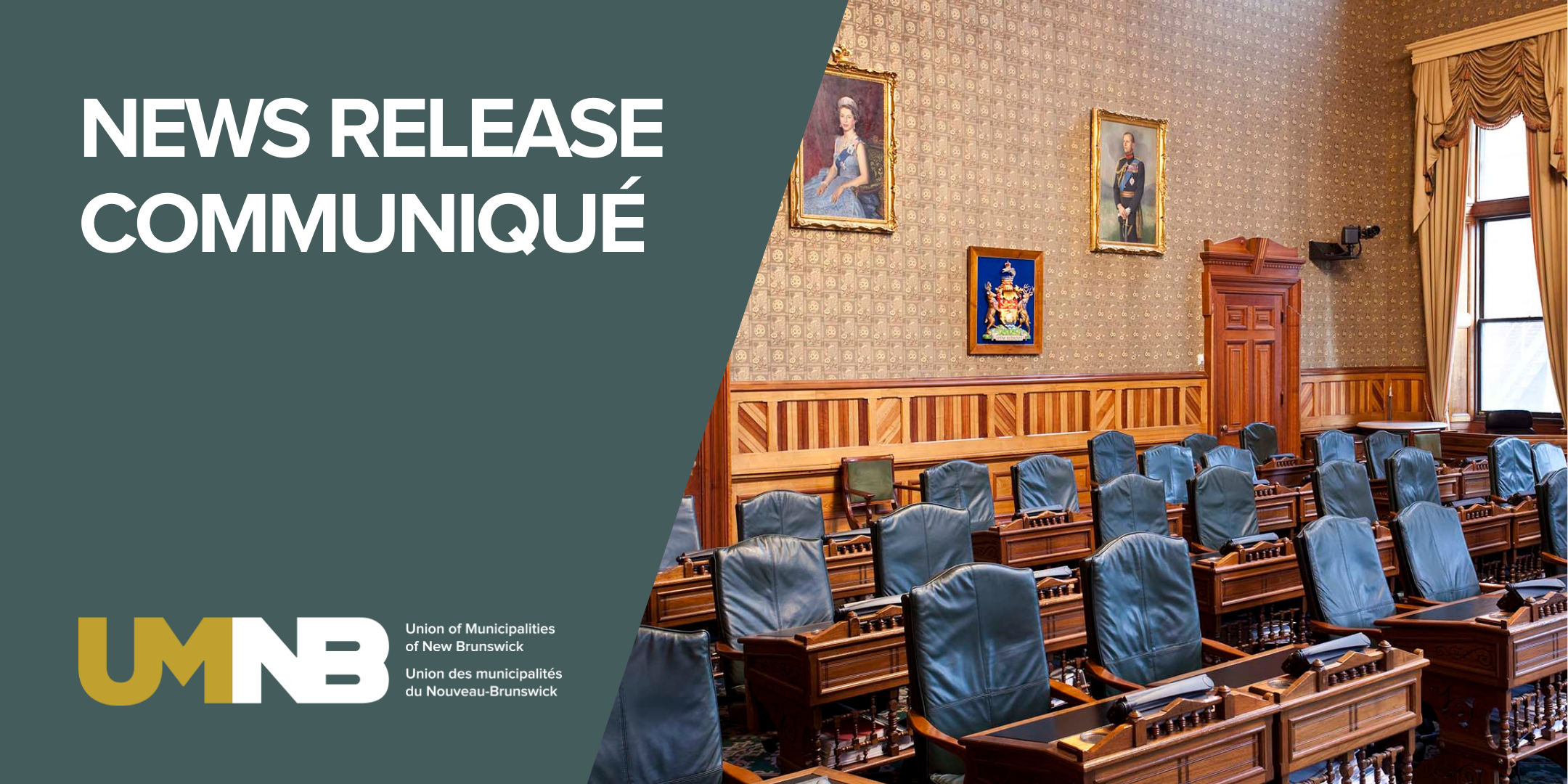
April 9th, 2025
Fiscal reform: A good first step, but municipalities still awaiting full, sustainable, and diversified funding
Fredericton, N.B. – The Association Francophone des municipalités du Nouveau-Brunswick (AFMNB) and the Union of Municipalities of New Brunswick (UMNB) welcome the announcement of $138 million in municipal funding for 2026 as part of a new fiscal model. This represents important progress. Both associations acknowledge the minister’s recognition of the challenges municipalities face, as well as the work carried out within the provincial reform working group. However, today’s press release does not provide details on how funds will be allocated or the full implementation timeline – crucial elements for municipalities, which are still waiting for more information in order to plan effectively.
The 2023 local governance reform process significantly expanded the responsibilities of municipalities, particularly in areas like economic development, tourism promotion, regional transportation, and public safety. These new responsibilities are in addition to other provincial services that municipalities have shouldered, including homelessness, housing, and the recruitment of healthcare professionals. These responsibilities require adequate financial resources to be carried out effectively.
The funding announced today is a step in the right direction, but it still falls short of meeting actual needs. For two years now, municipalities have been shouldering expanded responsibilities without the funding to match. A five-year rollout would further delay full support until 2030 – seven years after municipal reform was implemented. Studies commissioned by our associations indicate that the real funding need exceeds $200 million per year, and this gap will only grow if concrete action is not taken quickly.
“What the government is announcing today is a major step forward, but it’s not yet the answer municipalities have been waiting for. For two years, they have been doing their part with the resources they have. However, responsibilities keep growing, and revenues are not keeping pace. We need to speed things up before the system cracks. We need concrete solutions, and more importantly, funding that meets the moment – not in five years, but now,” said Yvon Godin, President of the AFMNB.
Since the local governance reform, both associations have made sustained efforts to support the government in developing a modern fiscal framework. Our members have actively participated in the province’s working group and brought forward practical, realistic solutions based on local needs.
The current plan outlines a phased increase in funding over five years – a timeline that concerns UMNB and AFMNB, as it risks worsening an infrastructure deficit already estimated at over $2.5 billion.
“Delaying essential infrastructure investments only increases future costs and undermines the quality of services provided to citizens. We need to act quickly to prevent further deterioration. Our communities are the provincial government’s best partners. If adequate funding is not delivered soon, it will directly delay the achievement of provincial priorities including our shared goal of building more resilient local economies in the face of uncertainty like those from the US tariffs,” said Brittany Merrifield, President of UMNB. “Delays will impact the bottom line of municipalities, as the shifting financial realities put more pressure on municipalities to do more with less – which isn’t feasible. A five-year phase-in only prolongs that pressure and pushes critical investments further out of reach,” she added.
The associations also emphasize that municipalities are now delivering increasingly expensive services, including housing, community health, and homelessness support. And yet, property taxes still account for nearly 85% of municipal revenues.
“If we truly want to ease the tax burden on residents, municipalities need access to more diversified revenue sources. That requires increased and sustained financial commitment from the province to reduce our overreliance on residential property taxes. It’s the only way to truly reduce the burden on the most vulnerable residents,” President Merrifiled emphasized.
AFMNB and UMNB remind the public that they signed a memorandum of understanding in 2024 outlining a shared position in favour of a complete fiscal reform. This position is based on five essential principles: diversified revenue sources, stable support for regional services, a fair equalization formula, strategic infrastructure investments, and a modernized property assessment system.
For the reform to succeed, it must be guided by a shared vision and implemented in a coherent way. Isolated or poorly coordinated approaches could hinder expected results and weaken the ability of municipalities – and the province – to serve their citizens. A consistent overall approach is essential to ensure that progress in one area is not offset by setbacks in another.
Finally, the associations are concerned about the potential impact of international tariffs. “If 25% tariffs on certain materials remain in effect, the funding announced today won’t go as far as expected. Every dollar missing today will cost twice as much tomorrow – just one more strain on already tight municipal budgets,” concluded President Godin.
About the UMNB
The Union of Municipalities of New Brunswick (UMNB) is a bilingual association of 60 local governments of all sizes, representing over 82% of New Brunswick’s population. Together, our members tackle local challenges and share solutions to make life better for their citizens.
About the AFMNB
The AFMNB represents 30 Francophone and bilingual municipalities across six major regions of New Brunswick. Collectively, its members serve nearly 389,000 residents – close to half the province’s population.
Media inquiries:
Briana Cowie | External Relations Manager
briana.cowie@umnb.ca
(506) 444-2285
Michelle Barclay | Director of Policy
michelle@afmnb.org
(506) 542-2622 ext. 2447
